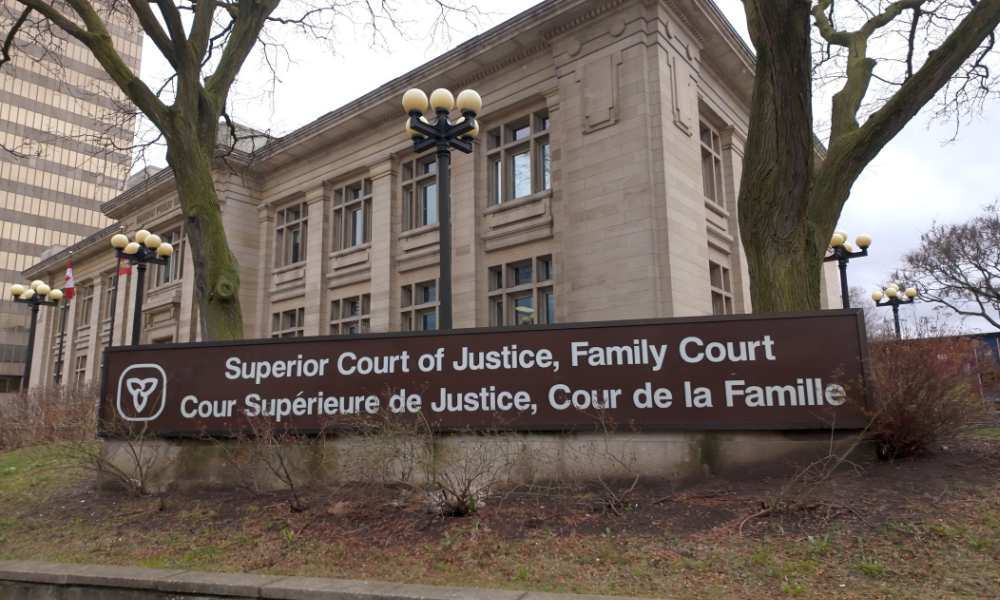
Judge says least costly response in injury case may be 'to walk away'

The Ontario Superior Court has found a solicitor entitled to a charging order for $857.20, plus interest, for disbursements in a personal injury proceeding arising from his client’s slip and fall incident in January 2018.
In Dunlap v. Williams, 2025 ONSC 3708, the applicants applied for a charging order relating to legal services that the individual applicant, through the applicant law corporation, delivered to the individual respondent.
According to the applicants, these legal services involved the personal injury matter, a will’s preparation, a pardon application, and a Small Claims Court proceeding.
The individual applicant opted to semi-retire before the resolution of the individual respondent’s personal injury case. The respondent law corporation took over carriage of the personal injury matter in 2020.
In 2022, the parties settled the personal injury proceeding for $40,000. The respondent corporation held the settlement funds in trust, pending a final determination of the present application.
In their application seeking a charging order against the settlement proceeds, the applicants wanted to recover $7,500 with interest, based on invoices sent to the individual respondent from 2017–20.
The applicants relied on documents allegedly signed by the individual respondent. These documents included a direction to transfer the personal injury matter to the respondent corporation, an irrevocable direction regarding that matter, and a promissory note.
The individual respondent sought to dismiss the application. He argued that he did not receive all the services the applicants allegedly rendered, the documents contained forged signatures, and the claims relating to some invoices were statute-barred.
The Ontario Superior Court of Justice found the applicants entitled to the principal balance of $857.20 for the disbursements in the personal injury matter, outstanding since Jan. 25, 2020, and a charging order in this amount plus three percent annual interest from Feb. 25, 2020, 30 days from the invoice date.
The court ordered the respondent corporation to pay the applicants the total amount reflected in the charging order, plus $500 for costs thrown away, from the settlement funds held in trust. The court dismissed the rest of the application.
Regarding costs, the court noted that its award to the applicants was below 15 percent of the sum they wanted to recover, given that the individual respondent was more successful in this application.
“It is unfortunate when the relationship between a lawyer and their client sours,” wrote Justice Sylvia Corthorn for the court. “Sometimes the most cost-effective response to the souring of the relationship is to walk away and treat past events as water under the bridge. The outcome in this matter is a cautionary tale as to what can happen when the individuals involved choose an adversarial path.”
The court found that the applicants met the three criteria entitling a lawyer to a charging order, identified in Weenen v. Biadi, 2018 ONCA 288.
First, the court determined that the respondent corporation held $40,000 in trust as property recovered in the personal injury matter as of the date the court made its reasons.
Second, the court ruled that the applicant corporation’s work relating to the disbursements listed in the Jan. 25, 2020 invoice was instrumental to pursuing and settling the personal injury matter.
Third, the court noted that the individual respondent claimed he would not pay the applicants for any amounts outstanding in the personal injury matter.
Lastly, the court decided that the applicants’ work concerning the will, pardon application, and Small Claims Court case was not “in the proceeding” under s. 34(1) of Ontario’s Solicitor’s Act, 1990, and was statute-barred due to the expiration of the relevant limitation period.
The court concluded that the amounts outstanding for fees, costs, charges, and disbursements in the matters apart from the personal injury case fell beyond the scope of the requested charging order.
The court deemed it unnecessary to address the individual respondent’s allegation of forgeries on the documents, given its findings that the applicants were not entitled to rely on these documents and the claims on the three other matters were statute-barred.